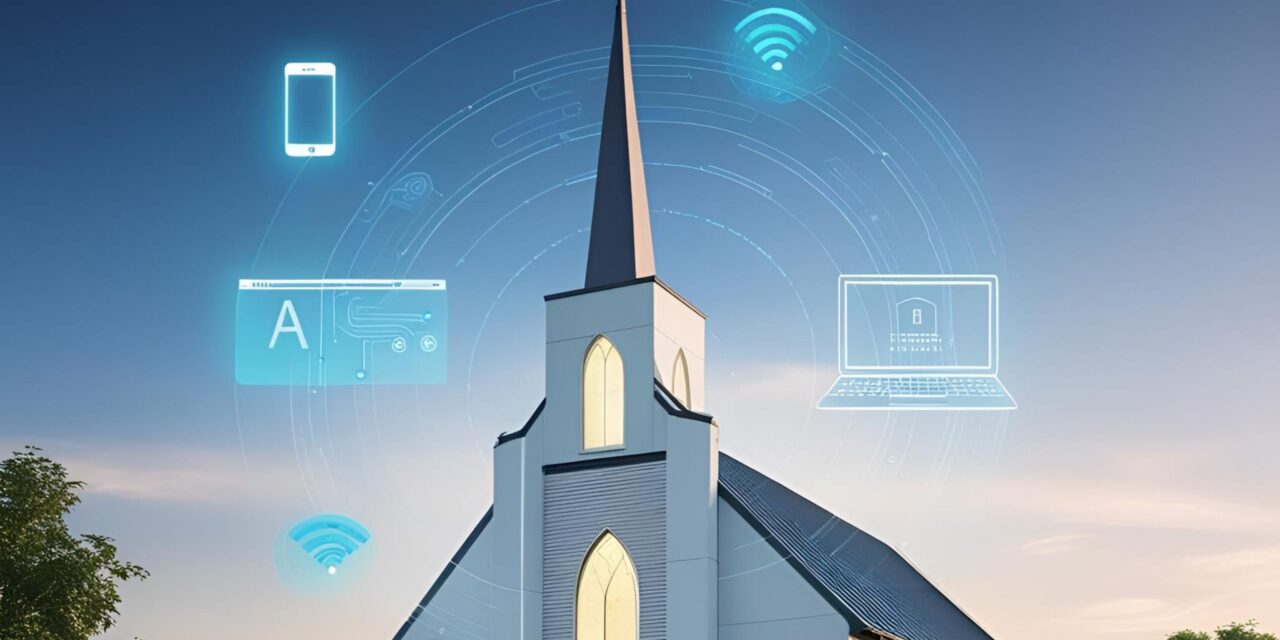Artificial intelligence (AI) has changed from a science fiction dream to something that affects our daily lives. When people hear "AI," they might think of robots from movies, but today's AI is both simpler and more amazing. It touches almost everything we do, often without us noticing. For church leaders trying to understand this technology, here's a look at AI's past, present, and future and how it might affect your ministry.
The Journey of Artificial Intelligence: From ELIZA to ChatGPT
AI began in 1956, when scientists first used the term at a meeting at Dartmouth College. One of the first AI programs, ELIZA, was made in the 1960s by Joseph Weizenbaum at MIT. This simple chatbot could pretend to have conversations by matching patterns in what people typed. It acted like a therapist, asking questions like "How does that make you feel?" People shared personal thoughts with this basic program, showing how we tend to treat technology like it's human, something that's still true today.
While AI grew slowly for many years, the last few years have seen giant leaps forward.
In 2020, a system called GPT-3 showed it could write text that sounded like a person wrote it. By 2022, programs like DALL-E 2 could create realistic pictures from written descriptions. When ChatGPT came out in late 2022, it was a big moment that brought powerful AI to everyday people. It gained 100 million users in just two months, faster than any other app in history.
In 2023, new AI systems could work with text, images, and sound simultaneously. In 2024, AI got better at reasoning, and special helpers were made for different jobs. These rapid changes have moved quicker than our understanding of them or the rules to control them.
Three Ways AI Already Pervades Our Daily Lives
Many people say they "don't use AI" while actually using it all day long:
Smartphone Features
The photos you take on your phone use AI before you even see them. Face recognition sorts your pictures by who's in them. Portrait mode uses AI to blur backgrounds and make photos look professional. Even auto-correct and predictive text use AI that learns how you write. When you talk to Siri or Google Assistant, you use advanced AI systems.
Content Recommendations
That sermon video you found on YouTube, the article in your news feed, or the next song played on Spotify—these suggestions come from AI studying what you like. These systems build profiles of what you enjoy to keep you watching or listening. The same technology powers the ads that seem to know what you were just talking about.
Invisible Infrastructure
From traffic lights that reduce jams to systems that catch credit card fraud, AI works behind the scenes everywhere. Weather forecasts use AI to predict storms. Email services use AI to block spam. Even the power in your church building likely flows through grids made smarter by AI. Most customer service starts with AI, which answers simple questions before a human gets involved.
The Continuing Evolution and Integration of AI
We're at an important point where AI is becoming more powerful while also becoming more integrated into everyday tools. The lines between different AI tools are disappearing, creating smoother experiences in some instances. Your car's GPS doesn't just give directions; it watches traffic, learns what routes you like, suggests stops based on your schedule, and can talk to the smart devices in your home.
AI is becoming more like the air around us—present but not in the way, activated by voice, gesture, or guessing what you need before you ask. The future looks like AI will be more of a partner than a tool, understanding context, remembering past conversations, and adapting to what you like.
AI is changing from a helpful extra to a necessary support for all professionals, including pastors. Those who learn to use these technologies well can do more, reach more people, and have more impact.
However, AI is also used as a tool to give false information. For example, recent videos of a Trump family member singing a praise song or a member of the Trump administration dressing down the Supreme Court—all nine justices at once!—were entirely fiction. Yet, the comments sections were filled with Christian commenters.
Besides the false information that is created for us to consume, there are big spiritual questions about relying too much on AI for Christian messaging, and the physical aspects of losing skills, depending too much on machines, and what makes human connections special.
AI and Faith Communities: Intersections and Questions
As we think about what AI means for churches, we find ourselves at an interesting crossroads of technology and faith. Like any powerful tool, AI brings both good possibilities and challenges for the Church.
The questions being asked by thoughtful church leaders are similar to questions asked whenever big new technologies appear:
How can AI help ministry while keeping real human connections?
Could sermon tools that analyze Bible verses in seconds give pastors more time to pray and be with people? Or could they lead to false interpretations or worse, take the place of real Holy Spirit anointing for our sermons?
Could AI assistants handle church paperwork so staff can focus on caring for people's spiritual needs?
Even deeper questions arise:
What does it mean to be made in God's image in a time of artificial minds?
How do we cultivate human virtues like compassion and faith while using AI?
Can AI help spiritual growth, or are some parts of following Jesus only possible with human teachers?
In future articles, we'll examine how churches are dealing with these questions—some using AI to do more ministry, others setting limits to keep technology from taking over sacred spaces. We'll explore Bible principles that can guide how we use these tools and consider what truths never change, even as technology transforms.
The story of AI and faith is still being written, but one thing is sure: learning how to use these powerful tools in ministry while protecting what makes the church human and spiritual will be one of the most important leadership skills in the years ahead.






